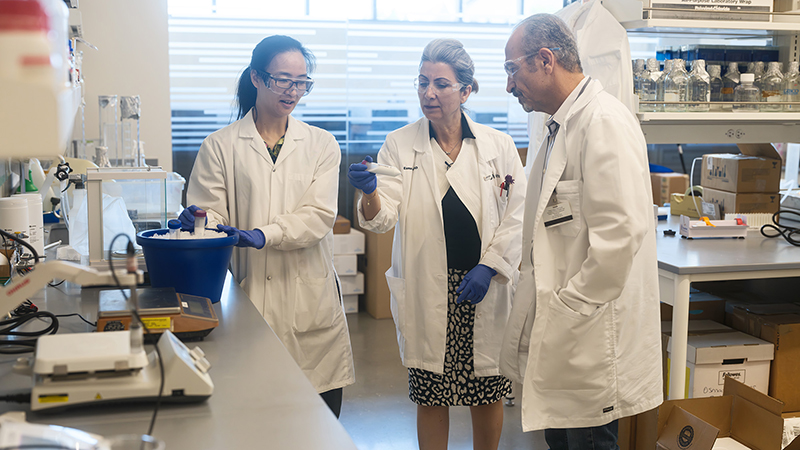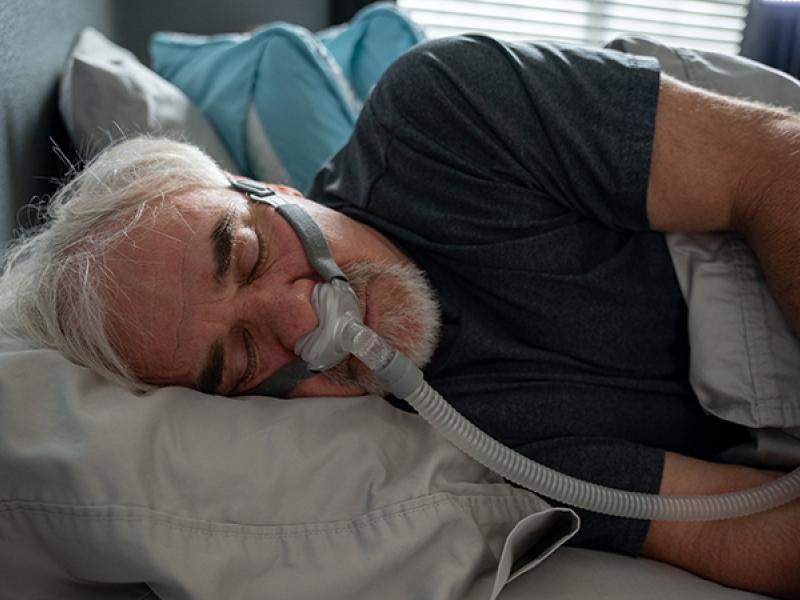
Contact: Janese Heavin, heavinj@missouri.edu
The University of Missouri is a growing hub for cancer researchers. From animal scientists and biologists to immunologists and oncologists, Mizzou is home to a multi-disciplinary team of experts who investigate the building blocks of the disease with the ultimate goal of finding a cure.
Among Mizzou’s cancer researchers are Haval Shirwan and Esma Yolcu, who recently joined the Cancer Immunoprevention Network (CIP-Net) established in 2023 by the National Cancer Institute. CIP-Net positions Shirwan and Yolcu’s team for success and is just one way Mizzou researchers are tackling cancer.
Here are five ways Mizzou scientists are driving cancer research forward:
1. Developing a universal cancer prevention platform.
Having recently joined CIP-Net, researchers Haval Shirwan and Esma Yolcu are striving for universal cancer prevention solutions. The major objective of CIP-Net is to support leading-edge research focused on harnessing the power of the immune system to prevent cancers before they take hold in the body. Shirwan’s and Yolcu’s team is one of the four institutions in the country that received inaugural funding from CIP-Net to train the immune system for the prevention of lung cancer, a paradigm-shifting approach that could pave the way for a universal cancer prevention scheme for high-risk individuals.
2. Saving lives with MURR-made isotopes.
A one-of-its-kind resource, the University of Missouri Research Reactor (MURR) is known for producing the radioisotopes that form the basis of cancer treatment drugs in the United States and beyond. To continue advancing these treatments, MURR is the only producer of no-carrier-added lutetium-177 in the U.S. In 2023, more than 1.6 million patients were diagnosed or treated using the radioisotopes produced at MURR.
3. Fighting cancer for $1/dose.
Mizzou researcher Paul de Figueiredo knows curing cancer requires multiple approaches. Through the Synthetic Programmable bacteria for Immune-directed Killing in tumor Environments (SPIKEs) project, he and his team are designing an inexpensive and safe therapeutic using bacteria that can recruit and regulate tumor-targeting immune cells to help the body fight cancer cells but without the side effects of traditional medications. De Figueiredo’s latest research is supported by $20 million in funding that is part of the presidential Unity Agenda in support of Cancer Moonshot objectives.
4. Seeking solutions at Ellis Fischel Cancer Center.
Adjacent to the game-changing Roy Blunt NextGen Precision Health building is the Show-Me State’s only designated cancer center. Ellis Fischel is a nexus of exemplary care, research and education that allows Mizzou clinicians to care for more than 30,000 individuals across Missouri each year. Accredited as an Academic Comprehensive Cancer Program by the Commission on Cancer, Ellis Fischel has the specialized infrastructure and talented physicians enabling it to offer a full spectrum of care through screening, treatment and recovery phases.
5. Developing a cancer vaccine.
For researcher Emma Teixeiro, the key to a cancer treatment is in immunological memory — how the body remembers past infections and how it protected against them. Teixeiro studies T-cells (the cells that store memories) to understand the cellular components that make up immunological memory. Her goal? To design a cancer vaccine that prevents the disease altogether.
This article originally appeared in ShowMe Mizzou October 1, 2024.

Highlighting the promise of personalized health care and the impact of large-scale interdisciplinary collaboration, the NextGen Precision Health initiative is bringing together innovators from across the University of Missouri and the UM System’s three other research universities in pursuit of life-changing precision health advancements. It’s a collaborative effort to leverage the research strengths of Mizzou toward a better future for the health of Missourians and beyond. The Roy Blunt NextGen Precision Health building at MU anchors the overall initiative and expands collaboration between researchers, clinicians and industry partners in the state-of-the-art research facility.





